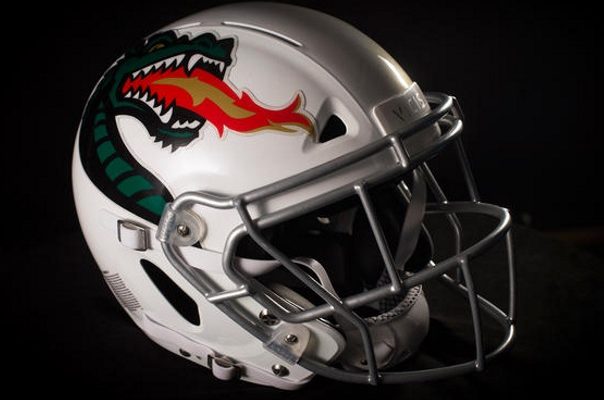NFL & NCAA teams to equip players with VICIS helmets

The Seattle technology startup Vicis, which has developed a helmet which absorbs impacts like a car bumper to prevent head injuries, has now taken developments another step.
The company will provide its helmet to 15-to-20 players who are participating in The Spring League, a new developmental football league that will host a 6-game season this month to help players looking to make NFL, CFL, and Arena Football League teams. Former NFL players like Greg Hardy, Kellen Winslow Jr., Ahmad Bradshaw, and others will be participating in the league, which is not directly associated with the NFL. The ultimate goal will be to equip NFL and NCAA teams with the helmet this fall.
Vicis CEO Dave Marver spoke with Taylor Soper of the Geek Wire:
“Having NFL-caliber athletes hitting hard with the helmet over the course of a month during practices and games gives us another opportunity to see if there is anything else we need to refine before the start of the fall season.”
The revolutionary ZERO1 helmet is designed to absorb impact more effectively than helmets currently being used at all levels of the game. At a cost of $1,500 the helmet features a unique outer shell material designed to yield on impact like a car bumper.
Founded in 2013, the company has raised $28 million to date from former NFL players and top biotech veterans, among others including the University of Alabama at Birmingham which has entered into a partnership with Vicis. UAB engineering professor Dean Sicking, who helped develop safer walls in auto racing and national highways, has studied for several years how to use automobile technology to reduce concussions.
Sicking explained the situation to CBS correspondent Jon Solomon:
“The biggest challenge right now is we really don’t know what causes concussions. We can make a helmet that’s much better. … But we don’t know exactly how to get there and that’s going to take some significant research, and that’s the biggest problem facing us today.”
The University of Washington and University of Oregon football teams had a chance to test the Zero1 helmets this past fall but stopped after player complaints about forehead pressure and a “higher than expected frequency of upper chinstrap disengagement.”
Vicis has now dealt with those issues making small tweaks and fundamentally redesigning the front of the helmet. Marver confirmed that the helmet will next season by NFL and NCAA teams. According to Marver, around 20 NCAA programs and 25 NFL teams will be using the helmet during spring practices and offseason activities over the next few months.
New helmet technology being tested for @OleMissFB this spring. @VicisPro #OleMiss pic.twitter.com/q96SRhJaeD
— ken crain (@kencrain) March 22, 2017
Vicis is growing and has just opened a production facility in Seattle and now has up to 50 employees as it continues to raise more financing. The company has also received approval from The Safety Equipment Institute, which certified that Vicis’ helmet meets the National Operating Committee on Standards for Athletic Equipment (NOCSAE) performance standard for football helmets.
Although Vicis is focused on NFL and NCAA teams, Marver said that Vicis also plans to provide youth leagues with its helmet within the next two years. It also has other active projects for areas outside of football.
Vicis and researchers at the University of Washington in Seattle, Washington oroginally collaborated and gained support and funding from the NFL, Under Armour, GE and NIST (under the banner Head Health Challenge), to develop the Zero1 football helmet.
Marver founded the company with CTO Per Reinhall, chairman of the UW Mechanical Engineering Department, Chief Medical Officer Samuel Browd, and UW Associate Engineering Professor Jonathan Posner.
Investors range from people like Roger Staubach, the 1963 Heisman Trophy and two-time Super Bowl winning quarterback with the Dallas Cowboys to folks like Robert Nelsen, a biotech industry veteran and co-founder of Arch Venture Partners along with Bruce Montgomery, a veteran of the Seattle biotech scene. Seahawks wide receiver Doug Baldwin is also an investor.